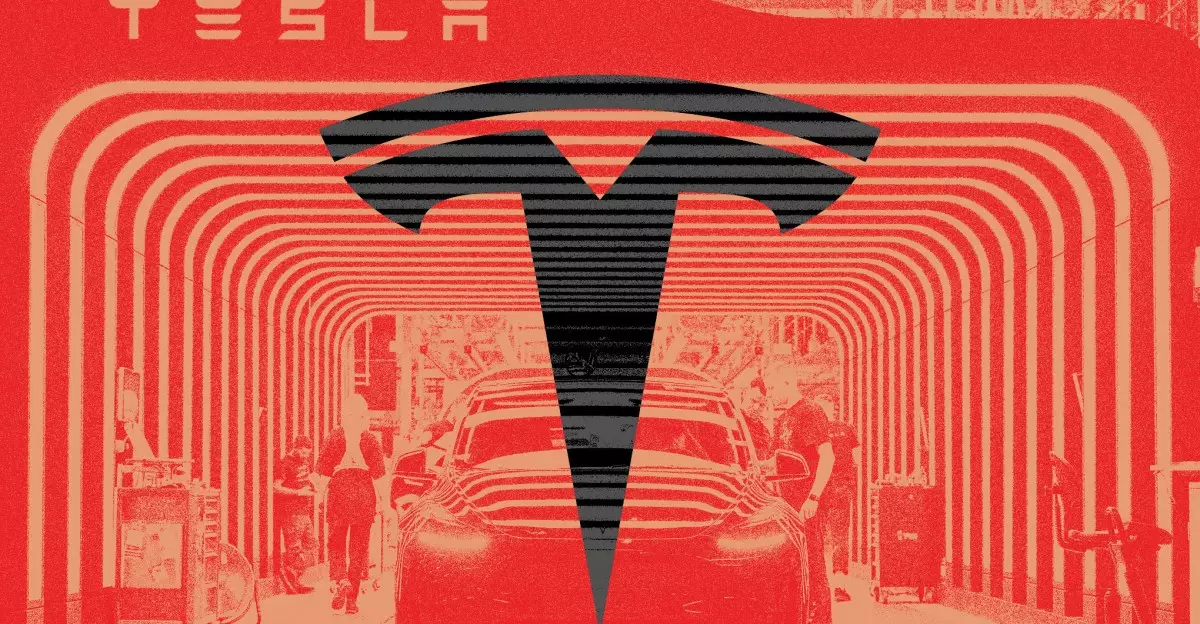Tesla, known for its revolutionary advancements in the electric vehicle (EV) industry, is currently facing a significant downturn in sales across Europe, with registrations plummeting by nearly 50%. This alarming decline raises crucial questions about the sustainability of Tesla’s market dominance and the potential ramifications for the brand’s future. It is often said that numbers don’t lie; in this case, the stark statistics reveal an unsettling reality. With only 7,261 new vehicle registrations reported in April, it is clear that something is amiss—particularly when the overall electric vehicle market is flourishing.
Hitherto a pioneer and leader in the EV sector, Tesla’s troubles diverge from the positive growth seen in competitors and even the broader electric market, which recorded a 26.4 percent increase in sales over the same period. The evident disparity poses the chilling possibility that Tesla may be on the verge of losing its hard-won reputation as the trailblazer of electric mobility. The dire sales figures sharply contrast with the expected performance following the rollout of the updated Model Y, a vehicle many believed would rekindle consumer interest and reinvigorate the brand.
The Competition Crisis: Domestic and International Rivals
Tesla’s challenges can no longer be attributed solely to market saturation or changing consumer preferences; they must be viewed through the lens of intensifying competition. Numerous new players have emerged, particularly homegrown European manufacturers and aggressive Chinese rivals, both of which are making considerable strides in the EV market. These competitors are not only offering innovative designs but also ramping up their marketing efforts to attract prospective buyers. As more appealing alternatives flood the European market, Tesla is finding it increasingly difficult to entice consumers.
Musk’s business philosophy, predicated on innovation and an adherence to aggressive growth, seems ill-fitted for the saturated environment. While Tesla previously thrived by being the sole game in the town, it is now facing a diverse array of competitors with differing strategies and offerings that resonate more with consumer needs and preferences.
Political Musings and Their Consequences
Furthermore, Musk’s foray into the political arena has seemingly alienated many potential customers in Europe. His public endorsement of far-right entities during contentious political times has created a chasm between Tesla and a segment of the European populace that prioritizes progressive values, such as environmental sustainability and social responsibility. The backlash appears to be palpable, compelling the CEO to announce a desire to step back from political involvement—nevertheless, it might already be too late.
The juxtaposition of Musk’s political maneuvering with Tesla’s corporate identity establishes a conflicting narrative that could erode brand loyalty. A recent poll highlighted that 58% of respondents view Musk unfavorably, a stark reminder that one’s business reputation is often intertwined with personal conduct. Despite initial excitement about the cultural cachet associated with Musk’s persona, the toll from his divisive actions is becoming apparent.
Trust Meter: Falling Brand Reputation
Tesla’s declining reputation extends beyond mere sales figures; it affects the very essence of brand identity. Once a titan revered for its innovation, Tesla has now slipped dramatically in brand rankings. The company’s position tumbling from eighth to ninety-fifth—amidst a landscape increasingly characterized by ethical concerns, transparency, and environmentalism—serves as a warning sign. With growing consumer awareness regarding corporate desirability, Tesla’s current trajectory raises red flags that cannot be ignored.
Yet, even as these issues mount, Musk maintains an unwavering confidence in a remarkable turnaround. Indeed, during the recent quarterly earnings call, he assured investors that forthcoming enhancements would revitalize sales. However, this optimism starkly contrasts with the urgent need for immediate and substantial corrective measures. As Musk remains preoccupied with AI and other technological adventures, one must question if the core automotive branch is receiving the attention needed for rejuvenation.
Not unlike a sinking ship that neglects its leaks in favor of exploring the ocean’s depths, Tesla may continue to compromise its core business as it grapples with leadership ambitions that overshadow pressing operational mandates.


Leave a Reply